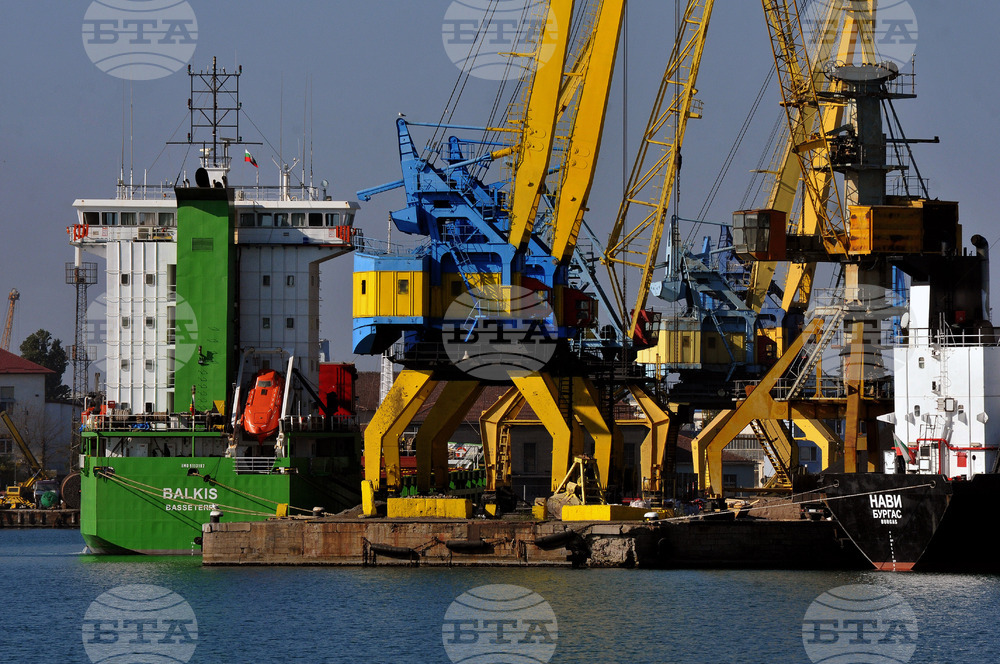site.btaUS Holds Relatively Small but Steady Share in Bulgaria's Foreign Trade


In recent years, the United States has accounted for a relatively small but steady share of Bulgaria’s foreign trade, with relative weights of approximately 2.5% of exports and 1.2% of imports, according to Economy and Industry Ministry data, provided to BTA in connection with the broad "reciprocal tariff" rates announced earlier today by US President Donald Trump for countries around the world. When announcing the measure, which includes a 20% tariff rate for European Union countries, Trump noted that the average tariffs imposed by the EU on the U.S. are 39%.
In 2024, trade between Bulgaria and the US amounted to USD 1.576 billion, with exports totalling USD 1.120 billion and imports at USD 456.1 million, according to National Statistical Institute data. Compared to 2023, bilateral trade decreased by 8%. In 2023, trade with the US was valued at USD 1.708 billion, with exports to the US at USD 1.142 billion and imports at USD 566.1 million.
There have been some changes in the structure of bilateral trade since the beginning of the past decade, but in general, Bulgaria’s main exports to the US are Information and Communications Technology products, electronics, food products, sunflower seeds, essential oils, and, in some years, petroleum oils and fertilizers. Among the main goods imported from the US are petroleum coke, information and telecommunications equipment, diodes, transistors, and semiconductor devices, according to the Economy Ministry.
Main Bulgarian exports to the US in the period January-October 2024 include: mechanical machines and apparatus for specific purposes; medical, surgical, dental, or veterinary instruments and apparatus; iron rods or those made of non-alloyed steels; sunflower seeds; weapons, ammunition, and shells; coins; copper sheets, plates, and strips; animal food preparations; pharmaceuticals, among others.
Main Bulgarian imports from the US in the same period include: natural gas and other gaseous hydrocarbons; aircraft; petroleum coke, petroleum bitumen, and other petroleum residues; integrated circuits and electronic microassemblies; radio transmission apparatus; videophones; automatic data processing machines and their units; copper scrap and waste; passenger cars and other motor vehicles, among others.
Subsequently, the White House said that pharmaceuticals, petroleum and petroleum products, timber, copper, and semiconductor products will be excluded from the reciprocal tariffs.
The Economy Ministry emphasized that the opportunities for US exports to Bulgaria continue to be linked to factors such as Bulgaria’s strategic geographical location, simplified business registration processes, a low corporate tax rate, investment incentives in sectors like information technology, research, development, and production, as well as European funding from EU structural and cohesion funds for US companies, including small and medium-sized enterprises. A new factor in 2025 is the strong education levels in the technology sector.
Industries of interest for US exports are: agriculture and food industry, agricultural solutions and equipment, energy sector, environmental technologies, healthcare, medical equipment, pharmaceutical products, information and communication technologies, and security, among others.
Steel Production
Approached by BTA in March, Politimi Paunova, Executive Director of the Bulgarian Association of the Metallurgical Industry, said that Bulgarian steel production is not expected to be directly affected by the 25% global tariffs on all steel and aluminium imports to the US. "Regarding aluminium, there has been export of products, and tariffs were introduced during the first term of this president. Despite this, we still export to the US markets, but now it will be more difficult," said Politimi Paunova, Executive Director of the Bulgarian Association of the Metallurgical Industry.
Bulgaria does not export steel to the US and does not produce aluminium. However, it does export aluminium products to the US and other countries worldwide, with Europe being its largest market.
Paunova admitted that problems will arise due to the indirect impact of the new US tariff policy. Countries that trade with the US will now have to redirect their production to other markets, which will disrupt the global market, she explained. She also noted that the US is a significant market not only for European companies in the sector but also for those from China and developing countries. After the introduction of the high tariffs, some products will no longer be exported because it will no longer be economically viable. In such cases, these products will either remain in the European markets or be redirected to third countries, Paunova added.
/MR/
news.modal.header
news.modal.text